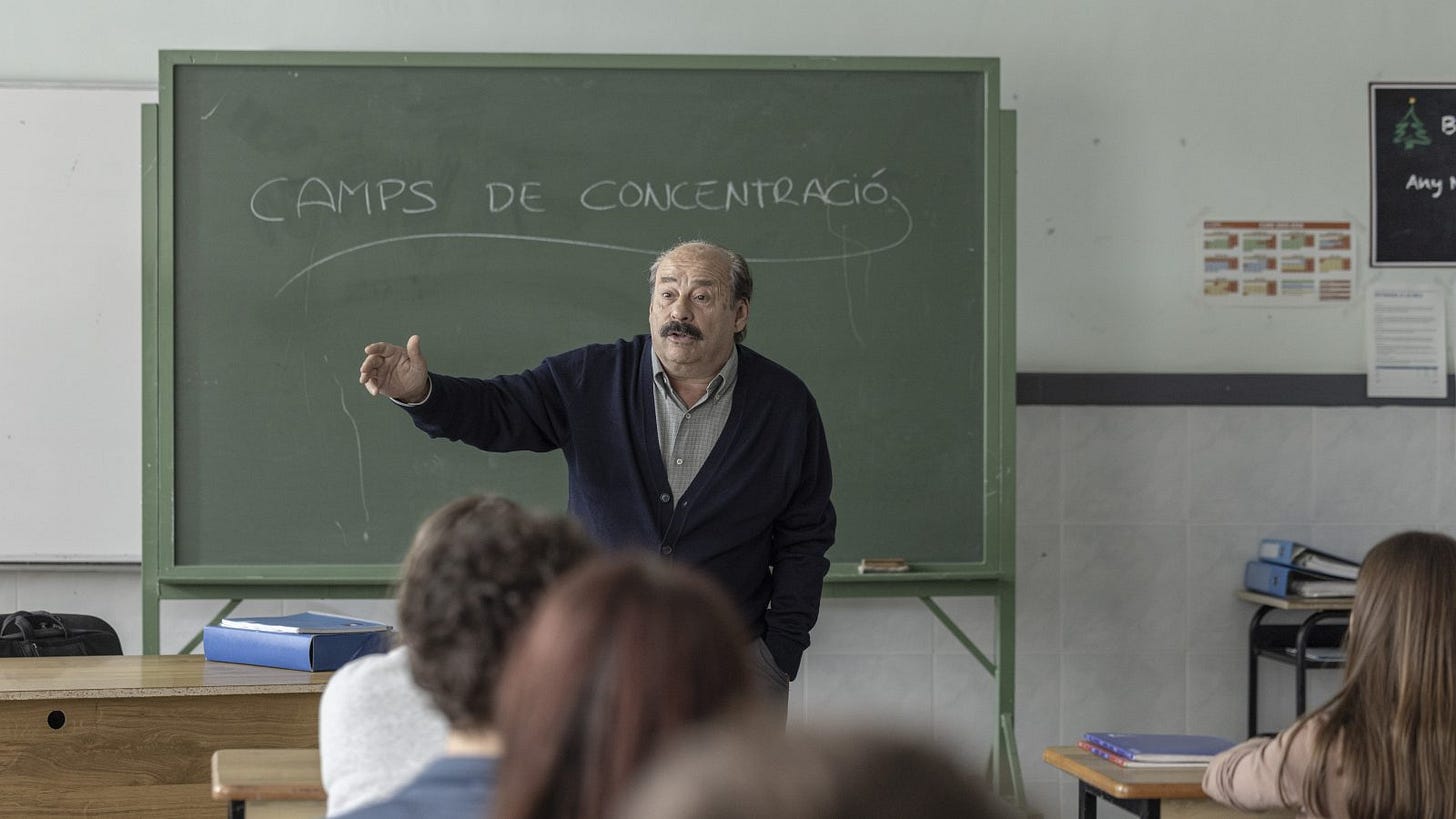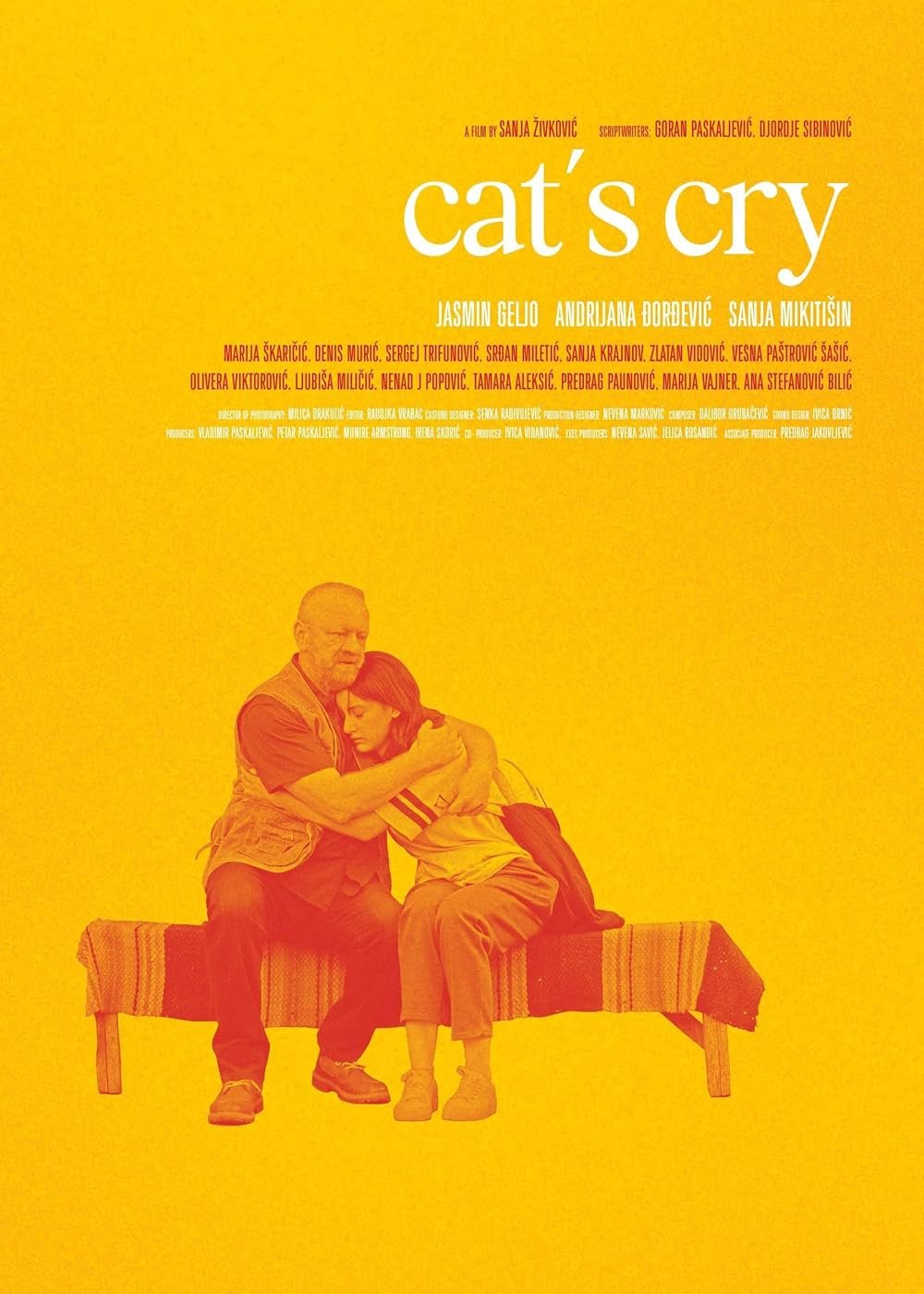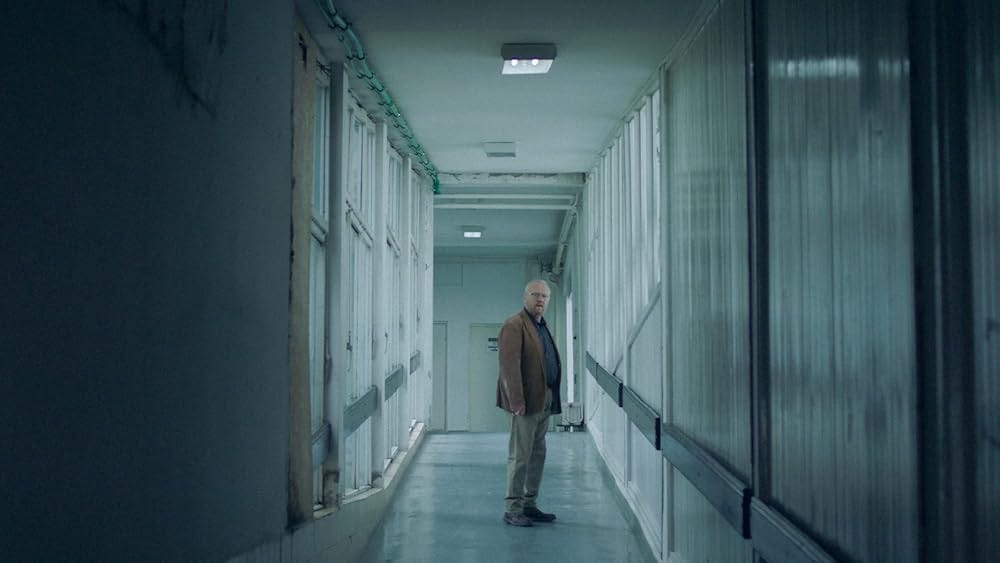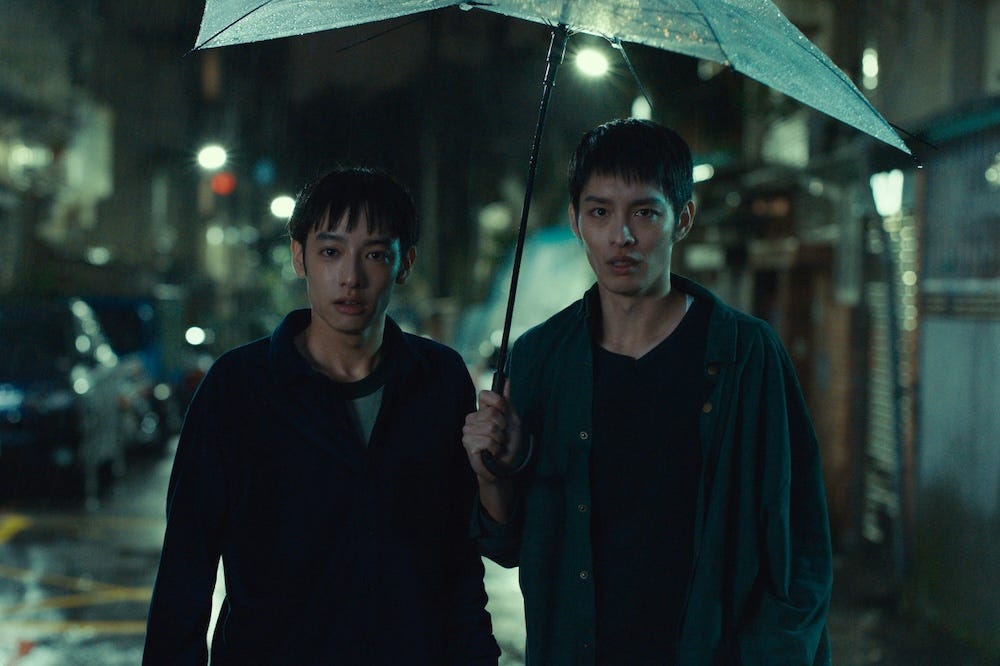Marco: The Invented Truth
Directors Jon Garano and Aitor Arregi
101mins
One of my favourite thing about film festivals (and exploring world cinema in general) is discovering true stories and scandals from around the world. Marco: The Invented Truth tells the story of Enric Marco, an elderly Spanish man who worked for years to get recognition from the Spanish government for the trade unionists who survived Nazi concentration camps but were never accepted back into the country at the end of the war. After fighting with the group of survivors for years, including being elected president of their association, it is revealed that Marco was a fraud. Charting his life from the birth of the lie to his final days, professing his intentions were innocent, directors Jon Garano and Aitor Arregi create a portrait of a man obsessed with self, and make the audience question their own role in the creation of truth.
The character of Enric Marco, brought to life with grim bluster by Eduard Fernandez, is a spiteful and egotistical man. Enric traps himself in a life of lies due to his desperate need for glory. We see him tell the lie of his survival first to impress leftists college kids, digging his heels in deeper as the years went by, until he all but believed the lie himself. He wrote a book, he became the head of a foundation, he plead with the government to recognize the struggle of a group he had no connection with. And when confronted with this, he did not back down or break, instead claiming that his experience was even worse than those who were in the concentration camp. It’s a pitiful existence, a small man who never made the morally right decision and decided to steal the honor of those morals later on. It’s his need for superiority that caused him to constantly one-up his previous claims. Enric Marco had to be the most hurt of anyone else. He must be the victim.
In the wake of his betrayal, we see the waves of harm his lies have caused, whether his friends who he has made within the organization, or his daughter who will now be known as the daughter of the disgraced man. Marco is unable to see this harm, and in the latter half of the film we see him still fighting for recognition in the work that he did. The film asks us if the recognition of truth is enough to justify a lie, as this is the view of our protagonist. Would the Spanish survivors have made it as far as they did in their cause without Marco? Would they ever receive the apology from their government that they deserved before dying out, as there was only a handful remaining? This is not a plain condemnation of Marco, but an investigation as to the benefits of his lies.
Garano and Arregi are not looking to present an absolute truth, nor do they believe there is one. Truth is malleable, and history is perspective. The opening shot of the film shows us the crew, the clapboard, the creation of the film completely. They lift the facade to show that crafting a story or a lie is an art. There is something grotesquely respectable in Marco’s determination for recognition. One can be revolting in their deceptions, yet respectable in their causes. Marco, the Invented Truth shows us how we can blind ourselves from the harms we can cause while paving a better path.
Cat’s Cry
Director Sanja Zivkovic
94 mins
Cat’s Cry follows the lives of a dysfunctional Serbian family after a birth in the family. When the newborn is diagnosed with an incurable, fatal syndrome, the young mother Milena (Andrijana Djordevic) abandons her daughter, leaving her in the custody of the hospital. Milena’s father, Stamen (Jasmin Geljo) spends the rest of the film desperately fighting for custody of his granddaughter. The film splits it’s time between exploring the family dynamics and the bitter relationship that has blossomed between father and daughter, and the failures of bureaucracy in a system built to protect no one.
The film is at it’s best when exploring the failures of the government and medical systems. Stamen is forced to go to extremes in terms of paperwork, money, classes, and more, without even given the joys of holding his granddaughter. In a world where nobody else wants anything to do with this dying child, the only man who loves her unconditionally is forbidden to take care of her. Even when the baby is going to be removed from the hospital and placed in an overburden and underfunded orphanage, this is now enough to give Stellan his granddaughter. The film highlights the lack of humanity in systems built by humans, and how we over-complicate such simple facts such as family. Jasmin Geljo is amazing in his role, a stoic and loving figure that takes every blow and stays standing. With his anchoring, the film is not just a cry into the void of bureaucracy, but is grounded in humanity.
Unfortunately the film does faulter when shifting focus to the relationship between Stamen and Milena. Milena is a young girl who, at times, expresses a desire for a bigger life than her village. Her abandoning of her daughter is not portrayed as a failure, but instead as a young girl incapable of dealing with such a burden as the inevitable death of her daughter. And while this is understandable if not forgivable, her bitterness and almost outright hatred for her father never makes complete sense. While elements of their backstory are expressed, it’s never shown why she holds such resentment towards her father, and her actions towards him and her stepmother Vera (Sanja Mikitisin) are unbalanced in their anger. It feels as if, though we spend a fair amount of the film with Milena, director Sanja Zivkovic struggled to interpret her interiority.
Though the film may sound heartbreaking, and it does not shy away from pulling at the heartstrings, the film is ultimately about hope. Stamen believes that things can get better. When in a desperate situation he can turn to his wife, or his neighbors, to help hold him together in his times of need. Milena, while never fully realized, does hold this hope as well, and some of her rage can be seen as a struggle against that hope dying. We meet other characters, whether they be the babies father or the doctors at the hospital, who have no hope, and thus have no future. Stamen, it’s shown, was on this path of losing hope, and in his granddaughter he was able to see a future. This movie shows how we must fight for that future we know we deserve.
Pierce
Director Nelicia Low
109 mins
Pierce is a stylish and compelling directorial debut that dives into the dynamics of family relationships, the love of brothers, and the sacrifices we’re willing to make for those we love. Following high schooler Zijie (Hsiu-Fu Liu) as his older brother Zihan (Tsao Yu-ning) returns after spending several years in prison. The two reconnect as the older brother trains Zijie in fencing, the sport that Zihan was previously a champion of before killing an opponent in a match, a death that Zihan is adamant was an accident. The two must hide their relationship from their mother (Ding Ling), who has disowned Zihan and hopes to abandon her previously life altogether after marrying her lover. As the brothers grow closer, Zijie is forced to confront whether or not his older brother may be harboring a deep darkness.
With her use of close-ups and stark production design, director Nelicia Low isolates her characters from the world around them, making it feel as if they and the person they are talking with are the only people who exist. This is then played in different ways, whether highlighting a blossoming romance between Zijie and a fellow classmate, or emphasizing the pain that is present within the brothers fractured relationship. We are never sure whether we can trust Zihan, and the film never gives us the relief of knowing the truth behind his actions. Combine this was sudden and shocking moments of violence and gore, and the audience will be left shellshocked by the time credits role. We, like Zijie, have been forced to confront what we would do for someone we love unconditionally, even if they don’t love us back.
The love Zijie and Zihan show each other is contrasted with the love other characters in the film show to each other. Their mother’s lover is shown as an honest man from a respectable family, and even when he suspects he’s been lied to and cheated, he refuses to let of the mother character. His love for her is pure, like that the brothers at times show each other. The mother, on the other hand, is capable of a casual cruelty towards Zihan. She doesn’t believe his pleas of innocence, and shows no affection for him, even growing cold towards Zijie when he confronts her about her attitude towards his brother. She shows how familial bonds are not a guarantee of love, and that being loved is something that some people must earn. It is an effort, an active emotion, to love someone, and not something that can be attained casually.
The film is compelling in it’s narratives and shocking in it’s ultimate twists. While it subtly foreshadows the ending, it never feels inevitable and still leaves the audience feeling punched in the guts. The young stars both are wonderful, with Hsui-Fu’s doe-eyed wonderings working both in the scenes of his burgeoning gay romance and when questioning the motives of his brother. A debut that makes my very excited for the careers to come from it.








